Coronavirus: Embracing grey roots in lockdown
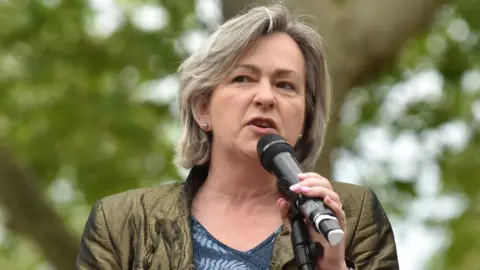 Getty Images/ John Keeble
Getty Images/ John KeebleUnless you live with a hairdresser many of us might be looking in the mirror and seeing more slivers of silver sparkling back at us.
Unable to get to the salon, some of us are reaching for the box dyes in a bid to get rid of those pesky greys.
Others, including celebrities, are embracing their roots, and joining the Silver Sisters social media movement.
But should we be reaching for the dye, or is now the time to embrace our roots?
'It was a relief'
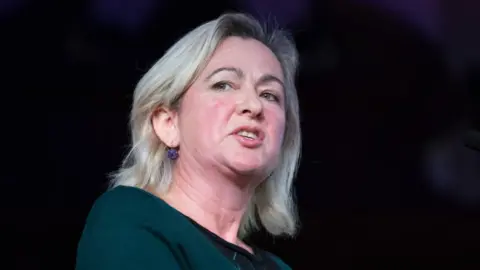 Vickie Flores/Getty Images
Vickie Flores/Getty ImagesAs a female politician Liz Saville Roberts is sadly used to having her appearance scrutinised by the media and by trolls online.
But when in autumn 2018, the MP for Dwyfor Meirionnydd decided to stop dyeing her hair she said it was "literally a relief".
"A part of me was just utterly fed up of dyeing it regularly. I just didn't want to worry about it any more," said the 55-year-old.
 Barcroft Media/Getty Images
Barcroft Media/Getty ImagesThe leader of Plaid Cymru in Westminster, who has naturally dark hair, said she first started seeing greys in her 30s and had even let her husband dye it at one point - leading to some interesting results.
But she said once she made the decision her hairdresser helped ease the process, stripping back the colour, so she would not end up with the tell-tale streak at the start.
"I was lucky with my hairdresser embracing it, if I was to have tried myself and dyed it with peroxide I would have come out with something like a mop on my head," she said.
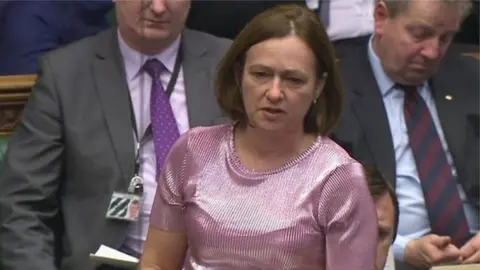
Ms Saville-Roberts said while it was every woman's choice what they did with their appearance, it was nice to see attitudes towards grey hair changing and women showing off and not covering their roots.
"I am who I am, I am not going to play a game of being someone else," she said. "Life is too short."

Allow Instagram content?

One of the celebrities to embrace her grey hair and join the Silver Sisters, or Goombre movements, is Marina, from Marina and the Diamonds.
In one post on Instagram, the singer, who grew up in Abergavenny, said she started getting grey hairs when she was about 15, and had been dyeing her hair since she was 22, as she "literally thought I had no other option".
"Grey equalled old to me - something most women are told is a bad bad thing....recently I've felt different. I want to be my natural colour."

Allow Instagram content?

She added the decision was kick-started by feeling sick from hair colourants, and said the hashtags and young women embracing their greys was inspiring.
Her posts, which show her grey roots, have attracted thousands of positive comments.

Allow Instagram content?

Hairdresser Louise Taylor has started online tutorials after being "inundated with messages" from upset clients struggling to deal with their roots.
But the stylist, who runs Little Lou's Hair Boutique in Cardiff, said while she understood why people were reaching for box dyes, clients had messaged for help after it had gone "terribly wrong".
"I just think a woman's hair is their crown," she said.
"It plays a huge part in how a women feels. You could have the most expensive and nicest dress on but if your hair is a mess then you will feel a mess."
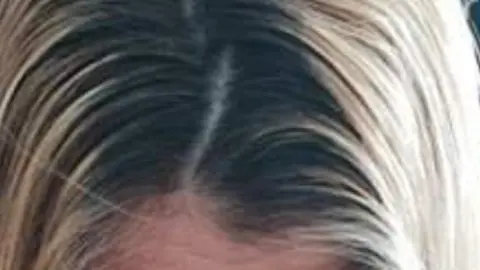 @lous.hair.boutique
@lous.hair.boutiqueLou said she had helped one client whose hair had turned orange while trying to get rid of her dark roots, by leaving the last of her toner supply on her doorstep.
"The messages kept coming as more people made this mistake," she added.
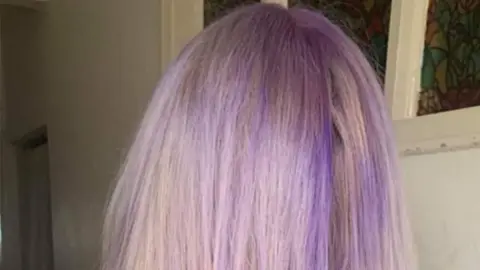 @lous.hair.boutique
@lous.hair.boutique
But Lou said there were benefits from giving your hair a break from chemicals and heat during lockdown.
"It will do wonders for the condition of your hair. So look at it on the positive side, you are giving your hair a good break and cleanse.
"You will leave lockdown with roots but maybe end up with nice silky hair."

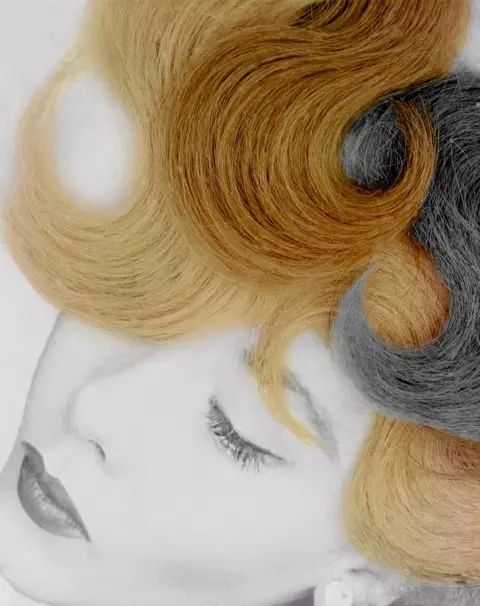 Clifford Coffin/Condé Nast/Getty Images
Clifford Coffin/Condé Nast/Getty ImagesWhy do we dye our hair?
While in some cultures grey hair is associated with wisdom, for years in western culture the trend has been for women to dye away their silver locks.
Rachael Gibson, known as the Hair Historian on social media, said people had been using hair colorants since ancient Egyptian and Roman times, using pickled leeches and herbs.
But she said the pressure on women to cover their greys began in 1950s, when brands like L'Oreal began marketing safe and discreet at-home colours.
"There was this idea that women had to be perfect, glamorous housewives, without a hair out of place," she said.

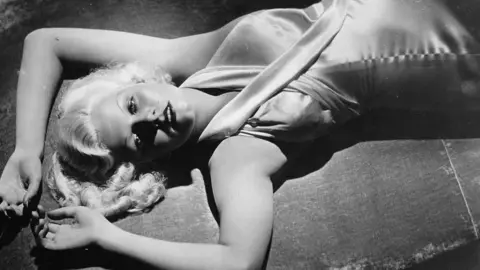 Imagno/Getty Images
Imagno/Getty Images
Ms Gibson said recent trends on social media showed a slight shift in society's attitude towards women with grey hair.
But she said there were still not enough role models, especially younger women, in magazines and on the TV showing realistic hair normal women could achieve without expensive personal stylists.
"At the moment having grey hair seems to be judged as 'she's not a woman now, she's given up', but in the last couple of weeks there has been a lot more movement towards people embracing it," she said.
